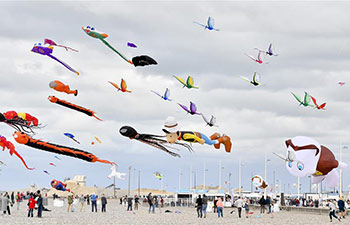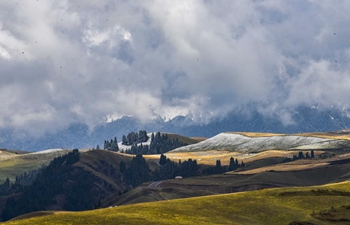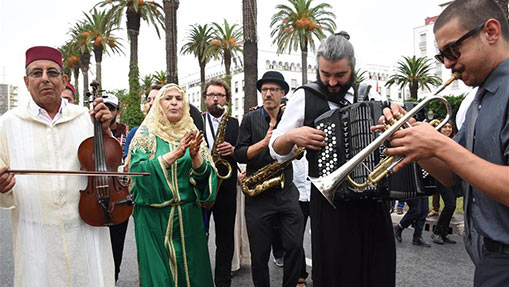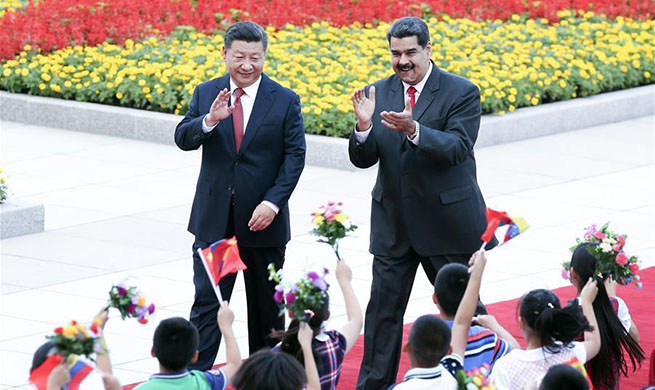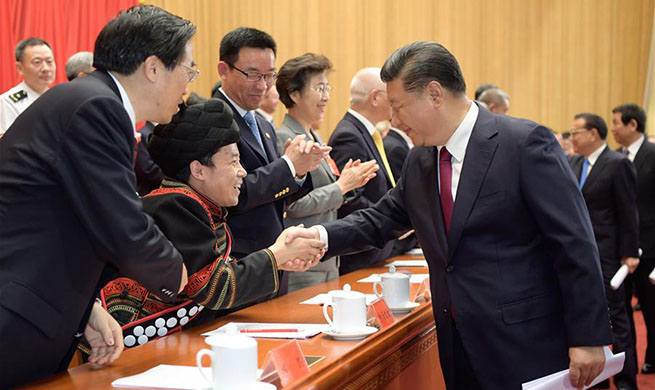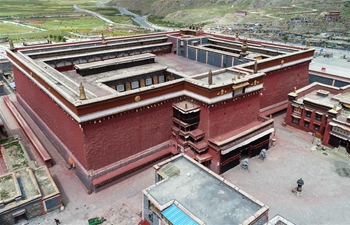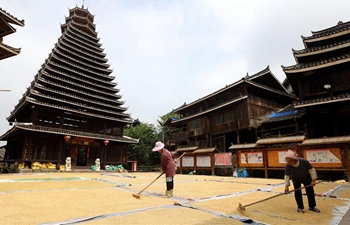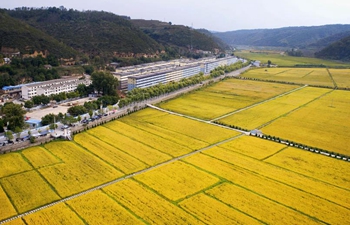DAMASCUS, Sept. 14 (Xinhua) -- When the Syrian army is preparing for the last major battle against the last major rebel stronghold in the northwestern province of Idlib, the United States, its western allies and Turkey oppose it. Why?
Various rebel groups are located in Idlib, but not all of them are on the same page.
The striking force among all rebel factions is the al-Qaida-linked Nusra Front, otherwise known as Hayat Tahrir al-Sham, Arabic for the Levant Liberation Committee (LLC).
Obviously, for the rebels, there is no other place that they could run to if they lose Idlib to the Syrian army.
For the Syrian army and its allies, liberating Idlib has become a priority as it will be the final defeat to the more than seven-year-long insurgency in the country after the army captured most Syrian areas.
But for the United States, its western allies and Turkey, such a move hasn't resonated with them yet.
Turkey, which is part of the Astana process along with Iran and Russia, sees Idlib as a place of interest, particularly after establishing 12 military observation points in Idlib and the countryside of the nearby Hama province.
Turkey-backed al-Jabha al-Wataniya lil-Tahrir, or the National Front for Liberation, was formed on August 1 from five rebel factions operating in Idlib and the northern countryside of Hama.
While acknowledging the fact that terrorist groups shouldn't be tolerated, Turkey wanted to establish cease-fire in Idlib and stressed that it was against any wide-scale military campaign in that province.
There are reasons behind the Turkish opposition to such a military offensive.
The first is the fact that Idlib is home to over three million people, with some estimates saying 3.5 million. Any wide-scale offensive could result in an influx of refugees toward Turkey, which already hosts nearly the same number of Syrian refugees.
Turkey can no longer take in more refugees amid a currency crisis and under both domestic and western pressures to put an end to the waves of refugees.
Military offensive in Idlib would also threaten the military observatory points set up by Turkey and would put those forces in front of two choices, either to confront the Syrian army and its allies or to withdraw.
The possible Syrian recapture of Idlib would also mean that areas under control of the Turkish-backed rebels in the northern countryside of Aleppo would be the next. Such areas are important to Turkey to ensure no expanding influence for the Syrian Kurds in northern Syria near the Turkish border.
The post-Idlib era is also what bothers the United States, as it has bases in northeastern Syria and also in the southeast in the al-Tanf area.
When the army captures Idlib, it would surely move toward the next stage, which is the departure of foreign forces that have entered Syria without the consent of the Syrian government such as the U.S.-led coalition and Turkey, according to Hmaidi Abdullah, a Syrian political analyst.
The U.S. forces are now backing the Kurdish-led Syrian Democratic Forces (SDF) in their fight against the Islamic State's last positions in the eastern countryside of Deir al-Zour province, an oil-rich area.
The United States has also carried out military training in southeastern Syria, which was seen as a message to the Syrian government and its allies that the United States is still present in Syria and is going nowhere anytime soon.
Also, establishing a strong foothold in the oil-rich areas in Syria is another reason of interest for the United States.
For that reason, the United States doesn't want to see Idlib returning under the government control, because that would move the game to the next level, which is the foreign forces in Syria.
The United States, Britain, and France have recently said the government forces in Syria were possibly planning a chemical attack in Idlib, a claim that has been completely slammed by Damascus and its allies of Russia and Iran.
The western powers are backing the United States in its opposition in Idlib because they fear the return of foreign radicalized fighters and the possible new wave of refugees.
The Syrian side and its allies think that the Idlib operation is a necessity particularly after several attempts to establish reconciliation with the rebels to avert Idlib a military operation has failed.
The Syrian and Russian sides have opened humanitarian corridors for civilians who want to flee the rebel-held area and they stressed that the civilians would be protected.
The Syrian side thinks that the western warnings of a "humanitarian catastrophe."
Bashar al-Jaafari, permanent representative of Syria to UN, said last week at a UN Security Council session that recapturing Idlib by the Syrian government is a "sovereign right" protected by the principles of the International Law and the charter of the UN.
He said that no country can undermine such a right.
Al-Jaafari stressed that the Syrian government has undertaken all measures and preparations to protect the civilians and offer humanitarian corridors to them.
He said the government also urged international organizations in Syria to get prepared to respond to the urgent humanitarian needs.




